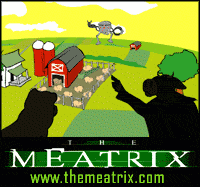Home
 Monthly
Monthly
 September
September
Trees, Shrubs, and Groundcovers
- Fall is a great time to plant and divide perennials and shrubs
for next year's garden. By planting in the fall, your plants do
not endure the stressful summer heat during establishment and
have time to form sufficient root systems before the onset of
winter dormancy.
- Don't let the fall pass you by with only the changing colors of
the trees to enjoy! Look for fall annuals that are tolerant of
cooler temperatures. Some suggestions are snapdragon, calendula,
pansy, flowering cabbage and kale, stock, viola, dusty miller,
and poppy.
- The perfect gift for the golden anniversary? Give the Golden
Rain Tree, Koulreuteria panniculata, favored for its brilliant,
gold, fall foliage show.
- High fertilization of pyracantha, an evergreen shrub, produces
rampant growth that is susceptible to fireblight and reduces
berry production.
- Give your perennials and woody ornamentals a fall check-up,
look for weak or diseased plants. Eliminate plants that might
infect or take energy from neighboring plants.
- If your landscape area is small, select diminutive cultivars of
woody ornamentals. Look for Latin names that include "compacta"
or "repandenus."
- Wait until deciduous trees and shrubs begin to drop their
leaves before fertilizing them. This signals dormancy, when no
new growth will be stimulated that might not harden off prior to
cold temperatures. However, roots are active until soil
temperature drops below 40 degrees F, so nutrients will be taken
up and used by the plants to develop a stronger root system.
- To minimize the occurrence of black spot on roses, prune and
remove infected areas. Be sure to destroy the clippings, as the
disease will carry over from year to year.
- Many balled and burlapped trees and shrubs are now sold wrapped
in synthetic burlap that will not rot in the ground, resulting in
a rootbound plant that doesn't grow well if the burlap is left in
place. Some of this material strongly resembles cotton burlap; if
in doubt about the burlap's makeup, cut it away from the root
ball once the plant is in place.
- Select some accent plants for your landscape that will provide
autumn color. Trees that turn red include dogwood, red maple,
black gum, sweet gum, and red or scarlet oak. Shrubs with red
fall foliage include viburnum, winged euonymus, and barberry.
- Allow plants to finish the summer growth cycle in a normal
manner. Never encourage growth with heavy applications of
fertilizer or excessive pruning at this time as plants will
quickly delay their hardening process that has already begun in
anticipation of winter several months ahead. New growth can be
easily injured by an early freeze.
- An easy way to propagate autumn olive bushes by seed is to
plant the whole fruits soon after they ripen in the fall.
- Tree-wound paints used after pruning are no longer recommended
because they can slow healing and may promote decay.
- If pesky seedlings of woody plants, such as elm or hackberry,
are found growing in your hedge, remove them as soon as possible.
If left too long, they will take over and leave gaps in the hedge
when they are finally removed.
- Rake up leaves, twigs, and fruit from crabapple trees, and
dispose of them in the trash to help control scab.
- Water newly planted trees and shrubs to provide sufficient
moisture and prevent winter damage. Add a 3-inch layer of an
organic mulch, such as shredded bark, around the base of plants
to retain soil moisture and regulate soil temperature.
- Stake and wire newly planted trees only if necessary. Use a
piece of rubber hose around the guy wires to protect the trunk,
and don't tie the tree tightly; it needs to be able to move a
little in the wind. Remember to take the supports and stakes out
in a few months once the tree is established.
- Generally, it is best for amateur arborists not to move
deciduous trees before their leaves fall.
- Needle leaf or cone-bearing evergreens can be moved now if you
want to transplant them. Move plants with an ample rootball.
"Always remember the beauty of the garden, for there is peace."
-- Author Unknown
|
|



